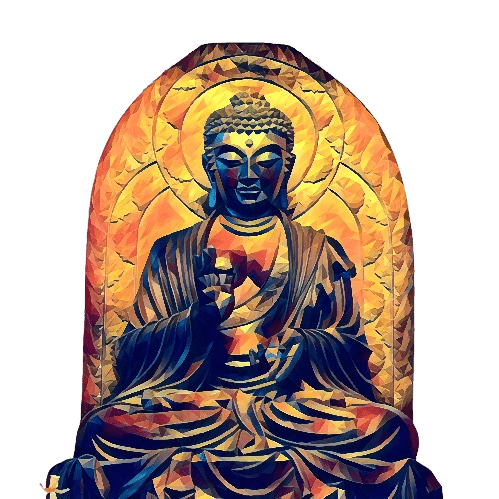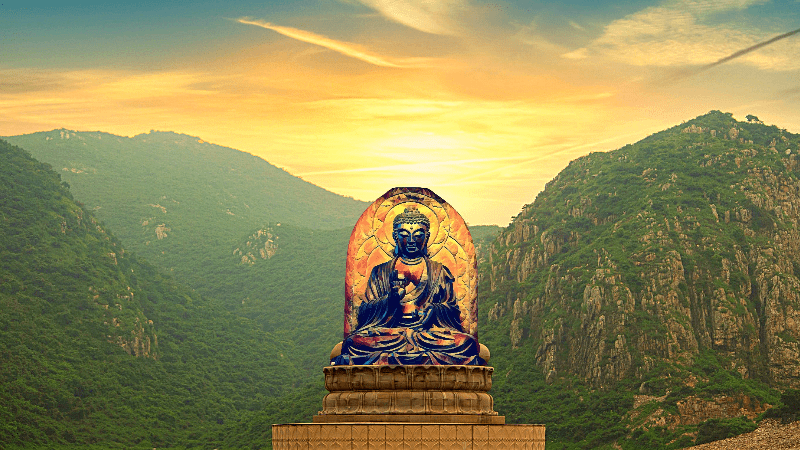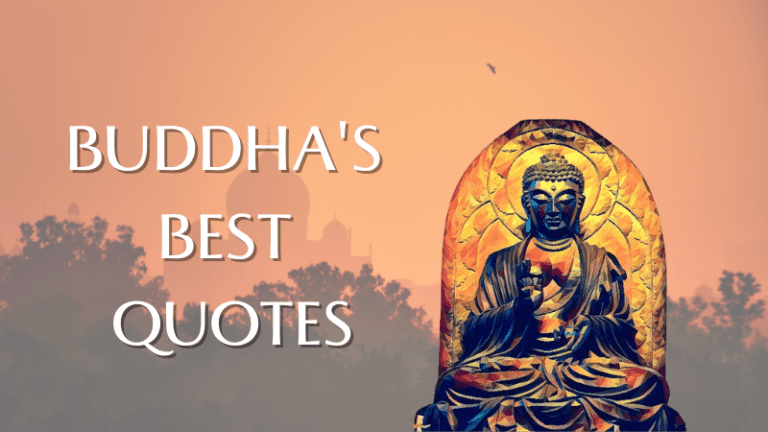Religion or Philosophy: What Exactly Is Buddhism?
What is Buddhism? This is a question that many people have asked themselves over the years, and it is not easy to answer. Buddhism can be considered both a religion and a philosophy and has millions of followers around the world.
Why can Buddhism be considered a religion?
What makes a religion?
By definition, a religion is "the belief in and worship of a superhuman controlling power, especially a personal god or gods."
Buddhism meets this criterion because it has followers who believe in the core ideas of Buddhism and live their lives according to the moral code. The most important components of a religion are faith, doctrine, and rituals. Faith is defined as "strong belief or trust in someone or something," and Buddhism requires its followers to believe in the Buddha and his teachings.
Doctrine can be defined as "a system of beliefs, especially that of a group or organization" Buddhism has a set of beliefs that millions of followers adhere to. These beliefs include things like reincarnation and the Four Noble Truths. Rituals are defined as "a set of actions or behaviors that are followed regularly and without exception by someone."
Buddhism has a number of rituals that are performed by its followers, such as meditation and chanting. Although Buddhism does not have a personal god that is worshipped, it still meets the definition of a religion.
In short:
Buddhism can be considered a religion because it has all the major components of a religion, including beliefs, teachings, and rituals.
This does not mean that Buddhism is the only religion with these components, but they are all central to the practice.
The first component, faith, is defined as "belief in and devotion to a higher power or being." In Buddhism, this higher power is the Buddha himself.
Buddhists believe in the teachings of the Buddha and believe that he was an enlightened being who achieved nirvana. The second component, doctrine, refers to the "body of teachings" that a religion holds.
Buddhism has a rich and complex teaching that includes the Four Noble Truths, the Eightfold Path, and the Five Precepts.
Buddhism also has a moral code that followers are expected to live by.
This Code is based on the Five Commandments, which are guidelines for ethical and moral behavior.
The commandments are: not to take life, not to take anything that is not given to you, not to commit sexual misconduct, not to tell lies, and not to take intoxicants.
Why, you ask?
Buddhists believe that following these precepts will lead to a more peaceful and harmonious world. The renunciation of taking life is based on the belief that all living beings have a right to life and that killing is wrong. The prohibition against taking what has not been given refers to the importance of not stealing. Renouncing sexual misconduct involves respect for all living beings, including women, and the belief that sexual relations should only take place between consenting adults.
Abstaining from lying is self-explanatory, and abstaining from consuming intoxicants is based on the belief that they cloud the mind and lead to bad decisions.
Even though these precepts are not as binding as a law, they are still important guidelines for Buddhists.
Buddhism is a religion based on beliefs, teachings and rituals. It also has a moral code by which followers are expected to live.
If you want to know something about the differences between Buddhism and Hinduism this article is just right for you.
Unlike some other religions, Buddhism has no single founder or sacred text
Buddhism is unique because it has no single founder.
The Buddha was born as Siddhartha Gautama in the fifth century BC in what is now Nepal.
He was a prince who left his palace and family to live as an ascetic.
After six years of asceticism, he attained enlightenment and began to pass on his teachings to others.
In Buddhism, however, the Buddha is not considered a god or savior. Instead, Buddhists believe that every human being has the potential to attain enlightenment.
Buddhists also do not have a sacred text, just as Christians have the Bible or Muslims have the Koran. Nevertheless, there are a number of scriptures that are revered by Buddhists.
The most important of these is the Pali Canon, a collection of the teachings of the Buddha.
The Pali Canon was written down in the first century B.C. and is the oldest Buddhist scripture.
Other famous personalities in Buddhism
In addition to the Buddha (who was actually named Siddhartha Gautama), there are a number of other important figures in Buddhism.
The most important of them is the Dalai Lama, who is considered the spiritual leader of Tibetan Buddhism.
The Dalai Lama is considered the reincarnation of the Buddha of Compassion and has played a significant role in spreading Buddhism throughout the world.
Dalai Lama is also not a name. It is much more a title and actually means ocean teacher in Tibetan. The current Dalai Lama is the 14th.
The philosophy of Buddhism states that life is full of suffering
Buddhism is a religion that has its roots in philosophy.
The central philosophy of Buddhism is that life is full of suffering. And the only way to achieve happiness is enlightenment.
The Buddha's teaching can be summarized in the Four Noble Truths.
The first truth is that life is full of suffering.
The second truth is that this suffering is caused by our desires and attachment to things.
The third truth is that we can end our suffering by letting go of our attachments.
And the fourth truth is that there is a path to liberation from suffering, namely the Eightfold Path.
The Eightfold Path is a set of guidelines for ethical and moral behavior. It includes: right understanding, right thinking, right speech, right action, right livelihood, right effort, right mindfulness, and right concentration.
Buddhists believe in reincarnation and that death is not the end of life
Like many other religions, Buddhism believes in reincarnation. Buddhists believe that after a person dies, his soul is reborn in another body.
This cycle of birth and death is known as samsara. Buddhists believe that it is possible to break out of the cycle of samsara and reach nirvana.
Nirvana is a state of perfect peace, freedom from suffering, and the end of the cycle of rebirth.
Buddhists believe that death is not the end of life, but merely a transition to another life.
At least until a person reaches nirvana, he is born again and again.
There you have it! Buddhism is both a religion and a philosophy with a rich history and complex beliefs. If you want to learn more about it, there are many resources to help you get started.
Here are a few of our articles on the very practical aspects of Buddhism:

Who and how Buddha really was you can learn here









